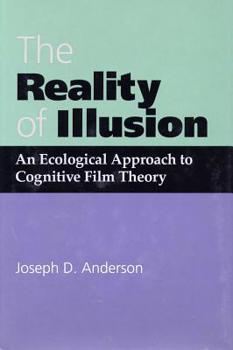< Back to Search Results
The Reality of Illusion: An Ecological Approach to Cognitive Film Theory
Select Format
Select Condition 
Book Overview
Anderson investigates how viewers, with their mental capacities designed for survival, respond to particular aspects of filmic structure--continuity, diegesis, character development, and narrative--and examines the ways in which rules of visual and aural processing are recognized and exploited by filmmakers. He uses Orson Welles's Citizen Kane to disassemble and redefine the contemporary concept of character identification; he addresses continuity in a shot-by-shot analysis of images from Casablanca; and he uses a wide range of research studies, such as Harry F. Harlow's work with infant rhesus monkeys, to describe how motion pictures become a substitute or surrogate reality for an audience. By examining the human capacity for play and the inherent potential for illusion, Anderson considers the reasons viewers find movies so enthralling, so emotionally powerful, and so remarkably real.






